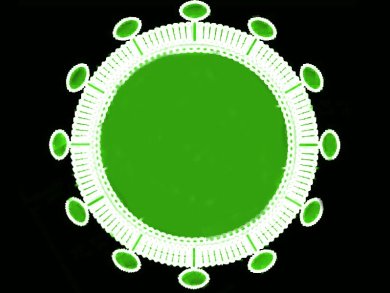The drug rilpivirine potently and effectively inhibits the replication of the human immunodeficiency virus (HIV), a pathogen which causes a progressive failure of the immune system known as acquired immunodeficiency syndrome (AIDS). This drug is effective against mutant viruses as it binds and inhibits an essential enzyme for the viral replication, the reverse transcriptase, even when this protein undergoes structural mutations to cause drug-resistance.
Daniel Kuroda, University of Pennsylvania, USA, and colleagues identified the exact structural basis of this phenomenon. The scientists demonstrated that hydrogen bond interactions occurring between a water molecule and the cinnamonitrile group of the drug anchor rilpirivine to HIV reverse transcriptase. As a consequence, structural mutations occurring in the enzyme do not provoke the expulsion of the drug from the binding pocket.
Thus, interactions between water and cinnamonitrile group need to be considered when designing anti HIV drugs.
- Snapshot of the equilibrium dynamics of a drug bound to HIV-1 reverse transcriptase,
D. G. Kuroda, J. D. Bauman, J. Reddy Challa, D. Patel, T. Troxler, K. Das, E. Arnold, R. M. Hochstrasser,
Nature Chem. 2013.
DOI: 10.1038/nchem.1559




